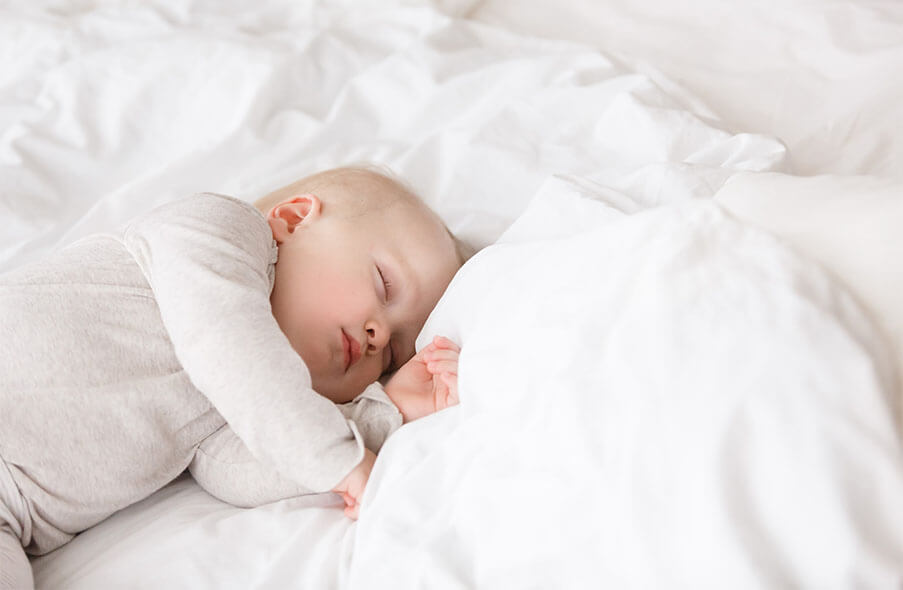
Children require extra sleep, in comparison to adults. While adults need just eight hours of sleep every day, children below the age of 12 require almost up to 16 hours of sleep depending on their age. However, as children grow older, they make it difficult for parents to put them to bed. In order to overcome this challenge, we have some tips that can come in handy and also build a healthy sleep habit for your child.
How Many Hours Do Children Need in Bed?
Pediatric professionals recommend the following hours of sleep, based on the age of the child.
|
Age |
Amount of Sleep |
|
Infants (up to 12 months) |
12 – 16 hours |
|
Toddlers (12 months – 2 years) |
12 -14 hours |
|
Preschool (3 – 5 years) |
Up to 13 hours |
|
Grade schoolers (6 -12 years) |
Up to 12 hours |
|
Teens (13 – 18 years) |
8 – 10 hours |
From the table above, it is clear that the recommended hours of sleep for infants and toddlers are almost up to 16 hours. While these are just recommendations, please remember that the actual requirement of sleep varies from child to child. You need to monitor your child’s activities and energy levels to determine the actual amount of sleep they require.
Tips for Developing Healthy Bedtime Habit in Children
Bedtime routine forms part of the daily family routine
In our previous article, we noted the importance of maintaining a daily family routine so your children can thrive as they grow. Part of this daily routine is to include a good bedtime routine. Waking up the same time every day, roughly, followed by meals, playtime, nap time, evening family time and night bedtime will create a rhythm for your child to follow. This way your child’s internal clock will also get used to falling asleep and waking up the same time every day.
Monitor their screen time and usage
It is highly recommended, for kids or adults, to avoid any form of screen time at least a few hours before bed. This is mainly because watching a video or playing a game keeps the mind active and engaged. This tells the brain to be wired and hinders any onset of sleep. By steering clear of electronics before bedtime, your child can pick up other habits such as reading books that will automatically put them to sleep.
Children’s sleep environment plays a vital role in their sleep habits
Sleep environment plays an equally important role in maintaining a healthy sleep schedule. A room that doesn’t match the taste of the child can cause sleep disturbance. On the other hand, a room that is tailor-made for your child will ensure they are calm and comfortable in their space. Additionally, setting up the room with plants and similar tones for walls and furniture will amplify the sense of belonging. This creates a safe space for them to snooze without any fear of monsters under the bed.
Read and understand different sleep problem in children
A lot of children suffer from some form of sleep disturbance or sleep problems. However, the younger they are, the harder it is for them to communicate. Therefore, read and equip yourself with early warning signs of sleep disturbance in children so you can catch them in time. By understanding the underlying problem, you can easily nip the problem at its bud.
About Us
We are a new sustainable, fashionable kid’s wear. At Tiny-Tycoon we ensure the kid’s come first and this reflects in our vision. As we gear up for our launch, we promise that your kids will look great in our line, and at the same time be comfortable and move without feeling restricted by their clothes.
To know more about Tiny Tycoon, visit our FAQs page.
